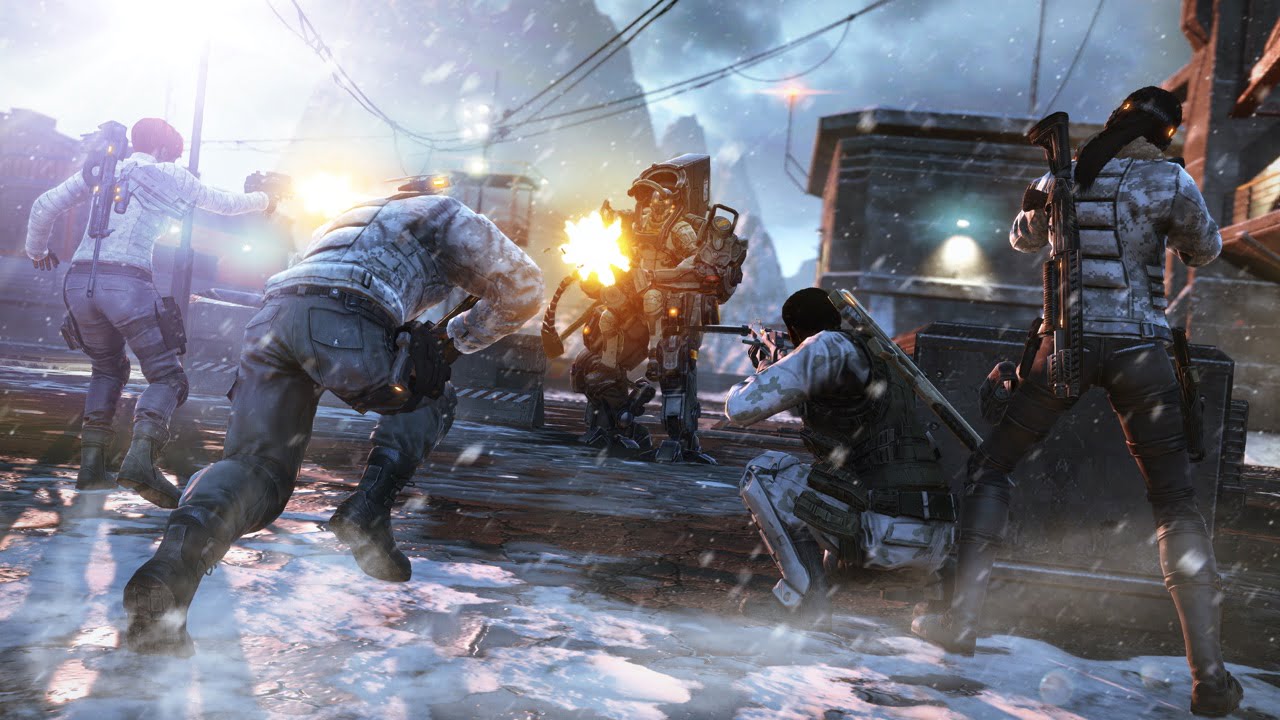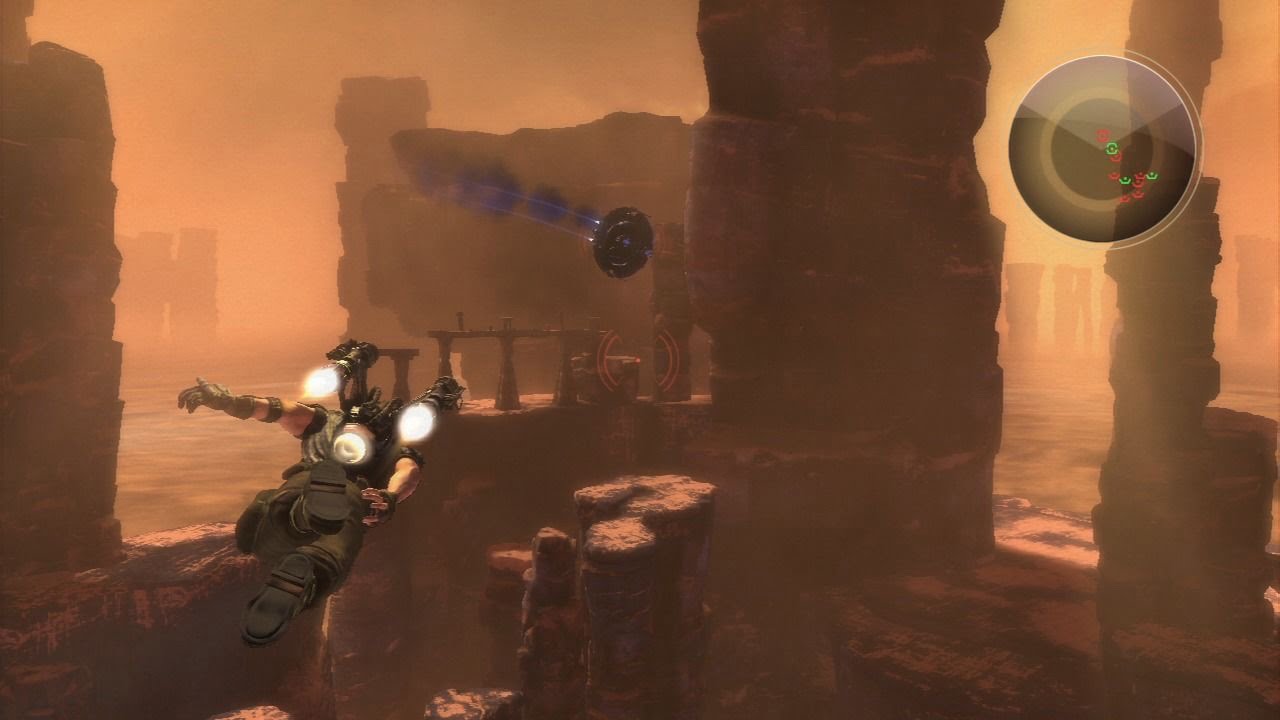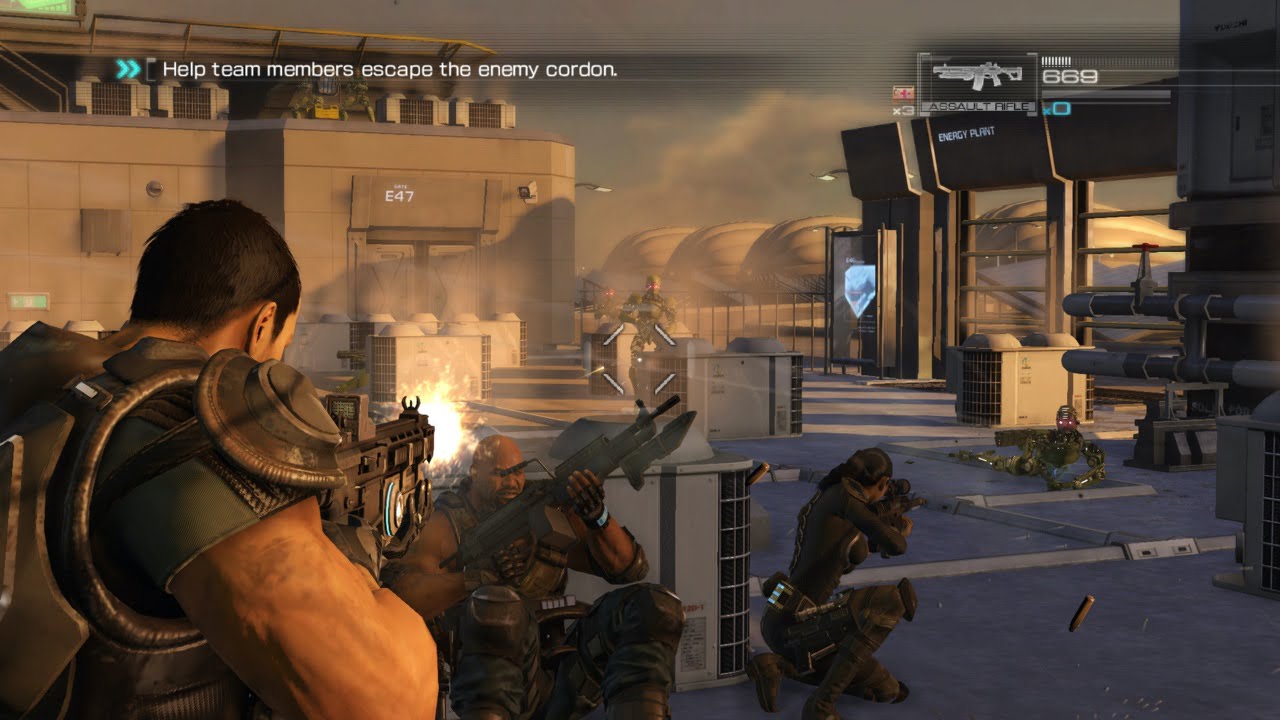Is your mind failing, or are these 19 video games just completely forgettable? We dig deep and try to remember.
During the Xbox 360 and PlayStation 3 console generation, publishers were happy to put time and money behind mid-tier AA video games, giving them a marketing push and a decent physical print run. Some of these games were good, and some were bad. We expect most were scored seven out of ten. Some were also pretty popular, but, for a variety of reasons, they have been forgotten over time.
Here’s an entirely arbitrary list of 19 games from the last console generation that have been deleted from our brains with magic mind erasers.
It’s interesting to note how many of the gameplay concepts and themes in these titles continue to thrive in some of today’s most popular titles. These video games may be forgotten, by us at least, but in some small way, their influence lives on. It also proves that sci-fi shooters never go out of fashion.
This is an entirely subjective list, of course, and you’ll likely have your own choices. Let us know on Facebook and Twitter which video games you still remember that no one else ever seems to mention.
Darwinia (2005)
Darwinia had already made a name for itself on Mac and PC before coming to Xbox Live Arcade as Darwinia+. It’s a real-time strategy game of the highest calibre with a crisp visual design that remains impressive fifteen years on. For a period, the game was the go-to tactical experience on Xbox 360, before gradually fading from consciousness. Someone really needs to port it to Nintendo Switch.
TimeShift (2007)
Saber Interactive’s TimeShift is a forgotten gem. The FPS gameplay is solid, but it’s the ability to stop and rewind time that makes it stand out. Pausing time to avoid incoming projectiles never gets boring, and the mechanic adds a welcome element of puzzling to proceedings. It’s a little simplistic by modern standards – and it’s chockfull of bland sci-fi soldiers – but at least it tried.

Afrika (2008)
For a brief moment, following its appearance at E3 2006, Afrika was a flag-bearer for the graphical capabilities of the PlayStation 3. Rhino Studios’ game was considered almost photorealistic, and its non-violent photojournalism gameplay was also appealing. Afrika eventually made it into the wild in 2008, by which time no one cared. A missed opportunity.
Wet (2009)
Wet had a troubled development – and was briefly on Activision’s books – before being released on a wave of hype by Bethesda. The game’s rough edges and Tarantino-esque grindhouse design make it a grubby experience to play. Eliza Dushku throws herself into the role of Rubi with considerable gumption, but it cant save the game.
Wet sold reasonably well, but no one who played it remembers they did until they look back over their Xbox 360 achievement history. Developer Artificial Mind and Movement morphed into Behaviour Interactive and is now best known for Dead by Daylight.
Create (2010)
EA’s puzzle sandbox is part-game, part-game creation tool-kit. It’s an ambitious product, but a myriad of usability issues and a limited toolset rather hobble it. Create does receive props for using the PlayStation Move controller as a game creation interface nearly a decade before Media Molecule released Dreams.
Dante’s Inferno (2010)
Visceral Games – aka EA Redwood Shores – was one of EA’s most productive studios during the 00s, working on acclaimed titles like Dead Space, The Godfather, and, erm, MySims Agents. In 2010 the studio adapted the first canticle of Dante Alighieri’s Divine Comedy (as you do) to create a hack-and-slash game designed to compete with God of War. The result was a good looking game with some thrilling moments.
Unfortunately, and like its inspiration, it’s a bit of a slog to get through. The mooted sequel – based on Purgatorio – never arrived. Gutted.
Dark Void (2010)
Bear McCreary. What a composer. He came to the attention of geeks like me with his fabulous music for Battlestar Galactica. Since then, he has provided scores for everything from Outlander and The Walking Dead, to Black Sails and the PS4’s God of War. In 2010 he created a majestic soundtrack for Capcom’s jet-pack action game, Dark Void. It’s a wonderful score, but the game is a mess.
The much-hyped ‘vertical cover system’ causes all sorts of bother in combat, and, despite its intriguing premise, the story goes nowhere. Dark Void received lots of buzz at E3 2009, but it stalled on take-off and was another of Capcom’s late-00s failures. That soundtrack though. Swoon.
Ni no Kuni: Dominion of the Dark Djinn (2010)
This Ni no Kuni adventure on Nintendo DS is a slightly cheeky inclusion. The game never made it to the West, instead evolving into Ni no Kuni: Wrath of the White Witch for the PlayStation 3. The fact it never received a Western release is surprising, considering the acclaim it received in Japan and the popularity of the Nintendo DS at the time.
Syndicate (2010)
Syndicate commits the biggest crime of all by reviving a much-loved franchise without paying dues to its history. The classic real-time tactical shooter was reborn as an FPS by Starbreeze Studios. It’s a fundamentally solid game with interesting traversal and fresh take on cooperative multiplayer. It was also well-reviewed, but the game failed to find an audience among newcomers or long-term Syndicate fans.
Brink (2011)
Brink has all the right ingredients. It has a super-cool, futuristic look, and an inventive first-person traversal system called SMART (That’s Smooth Movement Across Random Terrain, acronym fans). Even the narrative backdrop – humanity lives on a weird floating ark – is a cut above most other mid-00s sci-fi games.
Unfortunately, the team-based FPS gameplay never coheres into a consistently enjoyable experience. Add in some rough edges, and you have a game that is literally on the brink of greatness.

El Shaddai: Ascension of the Metatron (2011)
Despite lots of pre-release buzz, making El Shaddai: Ascension of the Metatron a mainstream hit was always going to be a difficult task. Notable for being based on apocryphal Book of Enoch, El Shaddai also gained attention for its striking Studio Ghibli-inspired graphics. Visuals of this nature were not common in 2011, and the way the game blends storytelling and combat with the aesthetics is delightful.
Although the game received a sequel of sorts – 2017’s The Lost Child – it’s a shame that El Shaddai isn’t recognised for its achievements.
Shadows of the Damned (2011)
You could rustle up a list like this purely based on games developed by Grasshopper Manufacture. Another EA published title, this collaboration between Goichi Suda and Shinji Mikami is as weird as you would hope. Ultimately, Shadows of the Damned was just too weird to find an audience. If nothing else, lead protagonist Garcia Hotspur deserves some recognition for his amazing name.
Bodycount (2011)
Bodycount is the perfect example of the era’s mid-tier shooters. Codemasters’ game is a sequel of sorts to 2006’s Black. It’s thoroughly competent, runs at a clip, and is completely forgettable. The game’s big selling point was its destructible environments, but in the event, even that can’t freshen up an uninspired sci-fi FPS.
Binary Domain (2012)
Binary Domain was another game to receive decent reviews but bomb commercially. Directed by Yakuza creator Toshihiro Nagoshi, it attempts to blend third-person gunplay with a narrative consequence system. Whether it was the genre, or the sense of antipathy surrounding Japanese games at the time, Binary Domain sunk without a trace. In recent years, its reputation has grown, and it’s now considered to be a something of a minor classic.
Book of Spells (Wonderbook) (2012)
Wonderbook is another of Sony’s overlooked innovations (take a bow, Eye Toy). Using a combination of the PlayStation Move controller, the PlayStation Eye, and the Wonderbook peripheral, this augmented reality game brings the Wizarding World to life. The tech works surprisingly well, but, like many Harry Potter spin-offs, it’s crushingly dull. Three more Wonderbook games followed, including a sequel, Book of Potions, and a game based on Walking With Dinosaurs. Thrilling.
Lollipop Chainsaw (2012)
Here’s Grasshopper Manufacture again with another messy hack-and-slash adventure. Colourful, hedonistic, puerile, stupid, trashy, sexy, and offensive, it’s all a bit much. Nonetheless, the game was successful, comfortably shifting over a million copies.
Despite impressive sales, it feels like Lollipop Chainsaw has disappeared from the gaming hive mind without a trace. No one even wants a Switch port. We’re kinda happy about that.

Fuse (2013)
Not everything Insomniac Games develops turns to gold, as this 2013 third-person shooter proves. The influences of Ratchet & Clank and Resistance are evident in a four-player co-op shooter that has some cool weapons but little else to commend it. It’s a bland game of bland sci-fi blandness complete with bland evil corporations, bland secret government organisations, and band superweapons. The cover art – also bland – is noteworthy for succinctly summing up an entire sub-genre of video games.
Fantasia: Music Evolved (2014)
Well, we had to include at least one Kinect game, didn’t we? Fantasia: Music Evolved is pitched as the official follow up to the Disney film series, which is quite the burden. However, Harmonix rose to the challenge with this beautiful and immersive game. The soundtrack is glorious, and even the Kinect functions work well. Despite the game’s evident quality, the technological barrier to entry means it’s little more than a footnote in Mickey Mouse’s rich history.
Yaiba: Ninja Gaiden Z (2014)
The much loved Ninja Gaiden series smacks itself in the face with this misguided spin-off. Yaiba: Ninja Gaiden Z is best forgotten for its difficult, buggy, and repetitive gameplay. Its leering, crass humour is also distasteful and the game proved to be the final nail in the coffin for developer Spark Unlimited.
We’ll also hand out honourable mentions to The Saboteur, Brutal Legend, Too Human, Puppeteer, and Devil’s Third. Tell us how wrong, or right, we are on Facebook and Twitter.
More video games from Thumbsticks
You can also get the latest video games news by following Thumbsticks on Google News and Flipboard.








